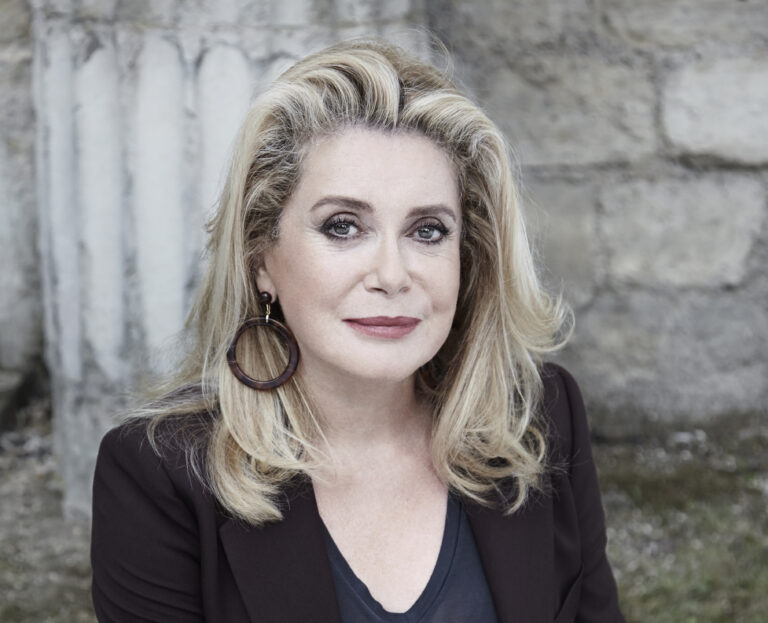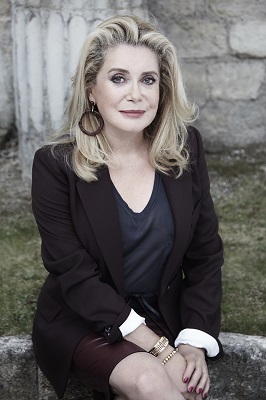The 30th
LaureateTheatre/ Film
Catherine Deneuve

Catherine Deneuve is a leading actress of France. She was born in Paris as the daughter of parents who were stage actors. She first started to act in films when she was in high school. She rose to stardom by her performance as a lovely heroine in Jacques Demy’s musical Les Parapluies de Cherbourg (1964 ). Her career spans more than half a century,and she has appeared in over one hundred movies. Her major movies include Luis Buñuel’s Belle de Jour (1967 ) and François Ozon’s 8 femmes (2002). She received the César Award for Best Actress twice for her performances in La Nouvelle Vague leader François Truffaut’s Le Dernier Metro (1980) and Regis Wagnier’s Indochine (1992). She received the Volpi Cup for the best actress in the Venice International Film Festival for Place Vendôme (1998). She is also active in social issues. Early 2018,she expressed her doubts about the “#MeToo” movement,drawing controversy worldwide.
Portrait: © Carole Bellaiche / H&K
Biography
It has been half a century since Catherine Deneuve rose to stardom by her performance as a lovely heroine in Jacques Demy’s musical Les Parapluies de Cherbourg (1964),but her majestic beauty prevails intact. She smiles: “I never thought being an actress would be my life’s career.”
She was born in Paris as the daughter of parents who were both stage actors,and she first started to act in films when she was in high school. She recollects: “My liking for cinema arose after I met director Jacque Demy. Had we not met,I honestly do not know if I would have continued to have been an actress.”
Catherine Deneuve is not just any other beautiful actress,for she has taken on the most challenging and unusual roles.
In Luis Buñuel’s Belle de Jour (1967),she took on the role of a married woman indulging in masochistic fantasies. Luis Buñuel was known as the “Father of Cinematic Surrealism.” In Hunger (1983),co-starring with British singer David Bowie,she took on the role of a female vampire. She also received the the César Award for Best Actress for her acting in La Nouvelle Vague leader François Truffaut’s Le Dernier Metro (1980). Thus,Catherine Deneuve established herself as a leading French actress.
Though she has appeared in many American films and also starred in films created in many other European countries besides France,her love of French cinema is strong. “In general,cinema is very close to society and the lives of people in the country. That’s what we mean,for example,with French cinema. French cinema is very talkative,the meaning of words are very important. American films put more importance in action. There’s indeed a big difference.”
Catherine Deneuve has always chosen the movies she acted for depending on the movie scripts. If the scripts were interesting,she would join the film even if the director was young and unexperienced.
She is also active in social issues. In 1971,she wrote an open letter with women writers such as Simone de Beauvoir and Marguerite Duras,to proclaim that the French anti-abortion law of the time should be abolished. Early this year,she expressed her doubts about the “#MeToo” movement,drawing controversy worldwide.
She says that aging has its good and bad sides for an actress. “Actors evolve with age,through their roles,their experiences and encounters. Its bad side is that time affects our visual features and we must accept it.” In the film Sage femme,released in Japan in 2017,she showed magnificent and mature acting skills as a mother who tries to enjoy the last part of her life,facing age and loneliness.
Catherine Deneuve has starred in more than one hundred movies. She says,“If I’d had the impression that the roles are no longer interesting,then I think I would call it a day,but that day has yet to come.”
She will continue to be a front runner in the future,as she has been during all her career.
Chronology
Belle de Jour
Zig-Zig
Actor’s mission award of AFF Award
The Kid Stays in the Picture,documentary film of Robert Evans' life
-

Catherine Deneuve

